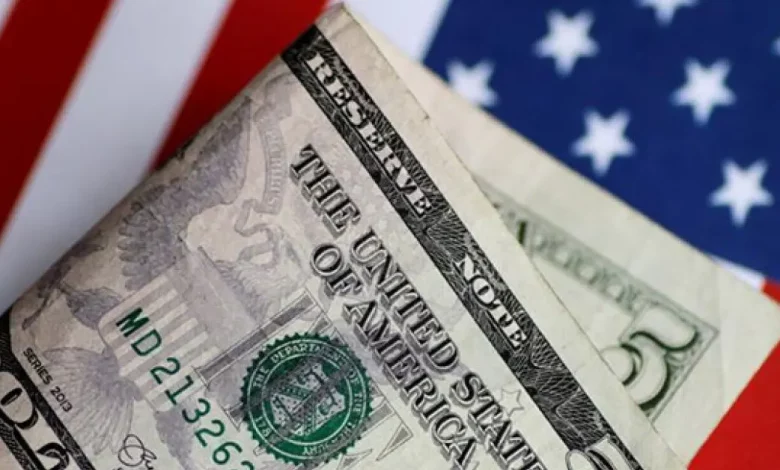Significance of De-Dollarization and Rupeefication
[GS Paper 3 - Indian Economy, Dollar Vs Rupee]

Context – Countries worldwide are pursuing de-dollarisation to reduce reliance on the US dollar in international trade, exploring bilateral currency agreements and strategies like rupeefication.
In the past century, a single currency has dominated the global economy, transitioning from the pound sterling to the US dollar, now comprising 59.02% of COFER. The US dollar’s prevalence is due to its pivotal role in international trade. India’s push for the Indian Rupee’s use in trade showcases this trend, aiming at bolstering economic autonomy.
About Dollarization
- Dollarisation refers to the phenomenon where countries adopt the US dollar as a substitute for their domestic currency to varying degrees.
- Dollarisation typically arises due to the poor performance of the domestic currency, caused by factors such as political instability or economic uncertainty.
- It can also result from financial market liberalization and economic integration, leading to reduced exchange rate risk and increased capital inflow.
- The US dollar’s dominance as an anchor currency for international trade contributes to its widespread acceptance and high demand, thereby driving dollarisation trends.
Significance of De-Dollarization
The global financial landscape is undergoing a seismic shift that has the potential to reshape the world order as we know it. At the heart of this transformation lies the process of de-dollarization – the gradual reduction of the U.S. dollar’s dominance in international trade and finance. This phenomenon carries profound implications for geopolitics, economics, and the stability of the global financial system. In this editorial analysis, we will explore the significance of de-dollarization in the present world order.
- Geopolitical Shifts: One of the most apparent consequences of de-dollarization is the rebalancing of global power dynamics. For decades, the U.S. dollar’s status as the world’s primary reserve currency has afforded the United States immense economic and geopolitical influence. De-dollarization threatens to erode this influence, as more countries seek alternatives to the dollar in their international transactions. China’s yuan, the Euro, and even cryptocurrencies like Bitcoin are emerging as viable contenders. As the dollar’s role diminishes, countries may be less beholden to U.S. foreign policy, which could lead to a more multipolar world order.
- Economic Implications: De-dollarization also has significant economic ramifications. Countries holding large reserves of U.S. dollars may experience losses as the dollar depreciates in value or loses its dominance. Moreover, shifting away from the dollar can reduce transaction costs and foreign exchange risks for countries engaged in international trade. It can also open up opportunities for countries to trade in their own currencies, promoting economic sovereignty. However, this transition is not without its challenges, as it requires substantial changes in financial infrastructure and regulatory frameworks.
- Risk Diversification: Another critical aspect of de-dollarization is the diversification of risk. Relying heavily on a single currency for international transactions exposes countries to vulnerabilities in the issuing country’s economy and monetary policy. De-dollarization allows countries to spread this risk across multiple currencies and assets. This diversification can enhance financial stability and reduce the potential for currency crises, as witnessed in the past.
- Impact on Financial Markets: The de-dollarization trend can significantly impact global financial markets. As the demand for the dollar decreases, its value may decline, potentially leading to inflationary pressures in the United States. Investors and financial institutions worldwide will need to adapt to these changing dynamics by reevaluating their portfolios and risk management strategies.
- Challenges and Barriers: Despite its potential benefits, de-dollarization is not without hurdles. The U.S. dollar’s entrenched position in the global financial system, the liquidity of dollar-denominated assets, and the absence of a viable alternative currency pose substantial challenges. Moreover, the United States is unlikely to relinquish its currency’s dominance without a fight, potentially leading to economic and financial tensions.
Conclusion:
The significance of de-dollarization in the present world order cannot be overstated. It represents a profound shift in the global balance of power, with far-reaching consequences for geopolitics, economics, and financial stability. While the transition away from the dollar is fraught with challenges, it is a trend that cannot be ignored. Nations and financial institutions must adapt to this new reality by diversifying their currency holdings, revising their international trade practices, and preparing for a world where the dollar’s dominance is no longer absolute. The future of the global financial system is at stake, and prudent measures must be taken to ensure its stability in a post-dollar world.





.png)



